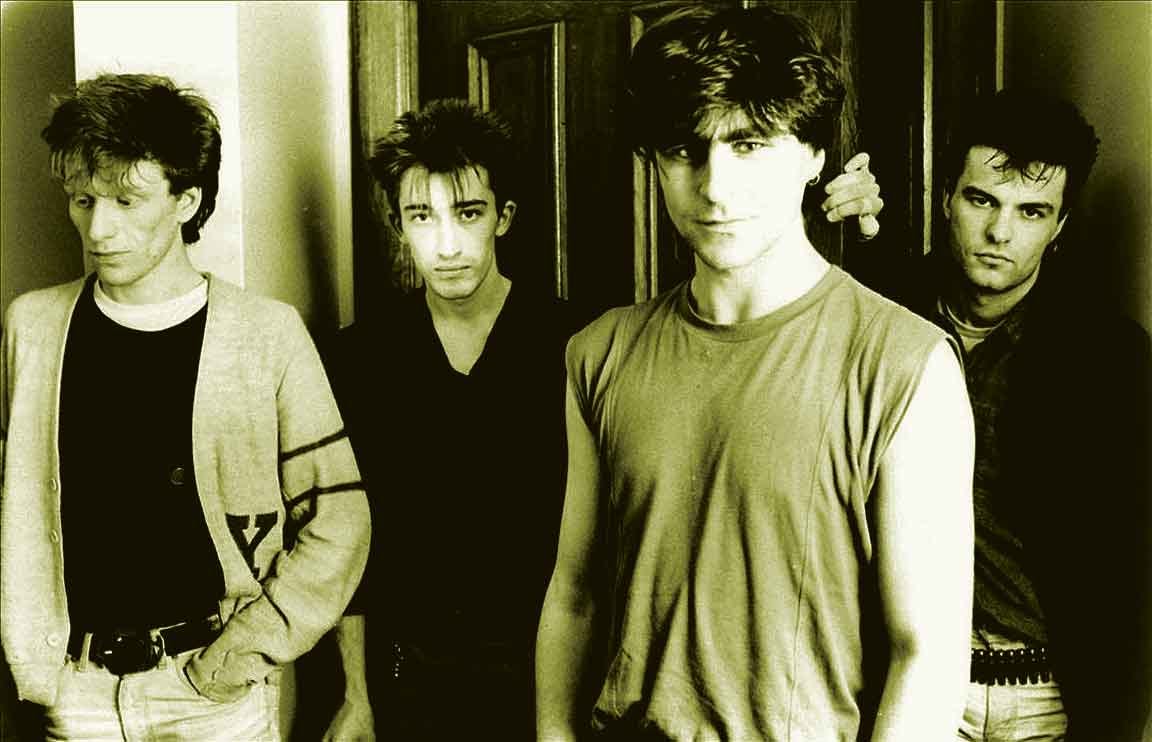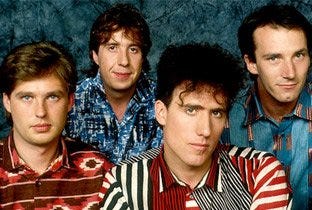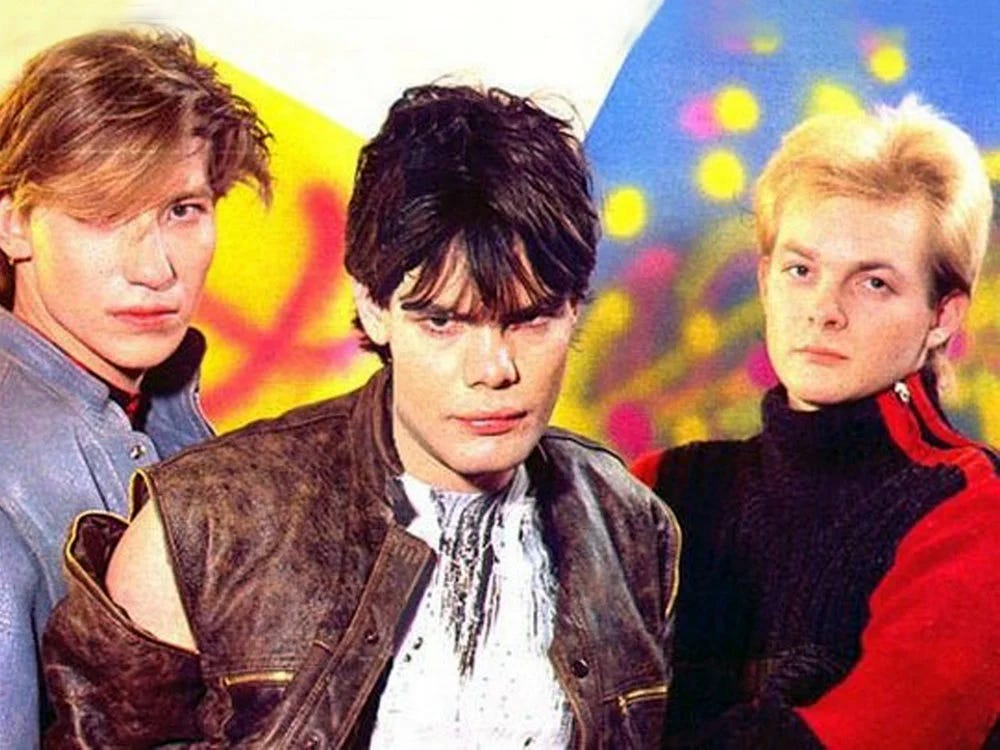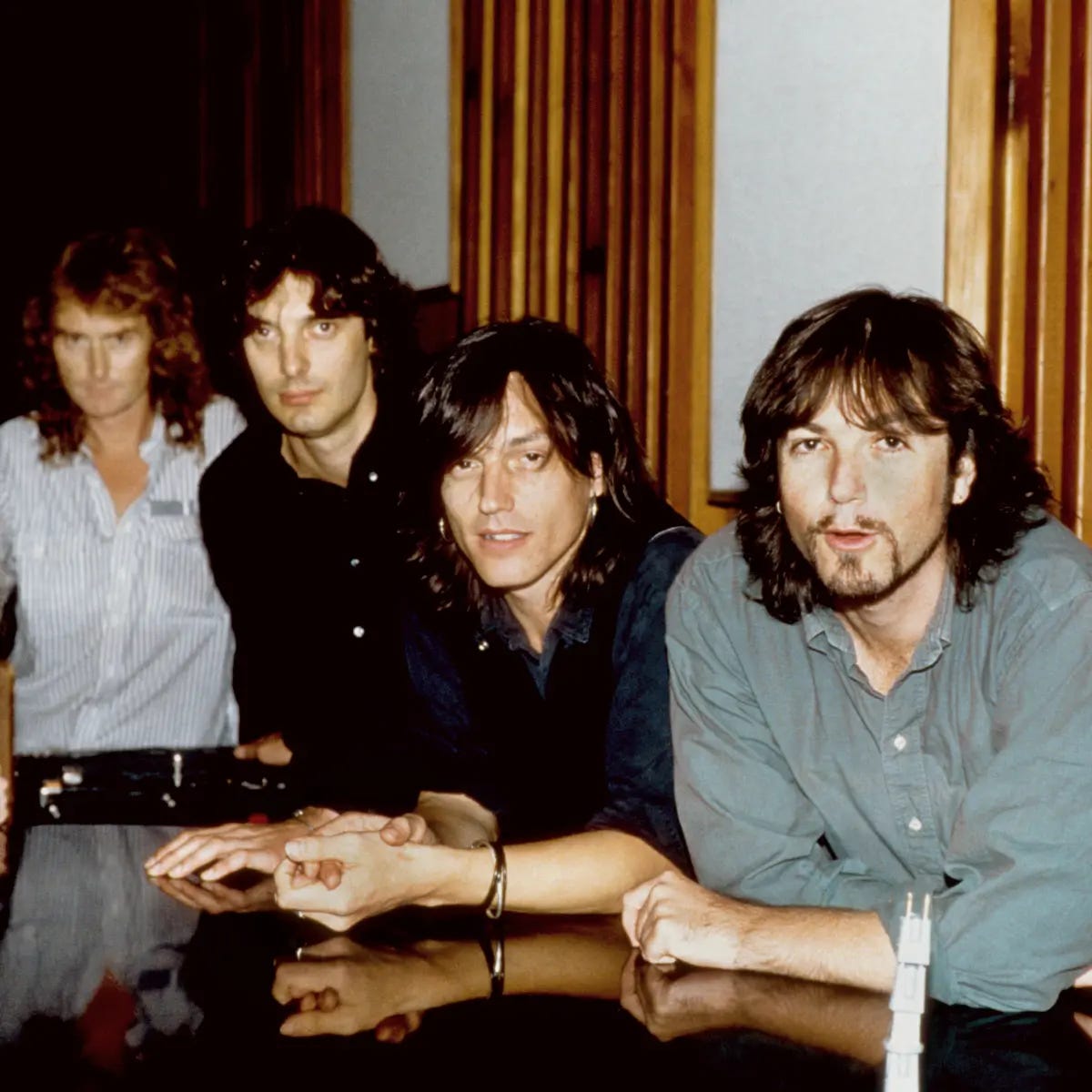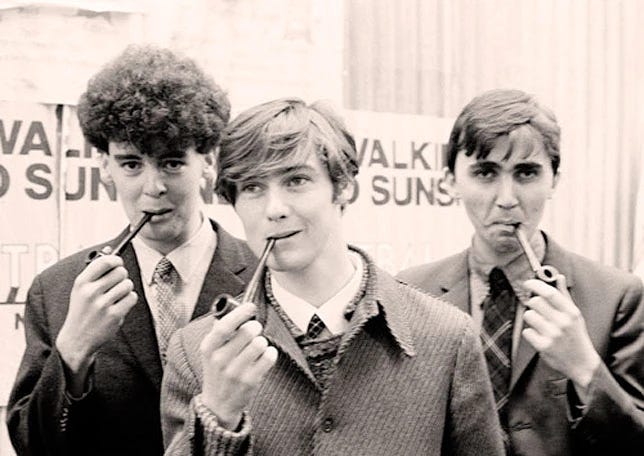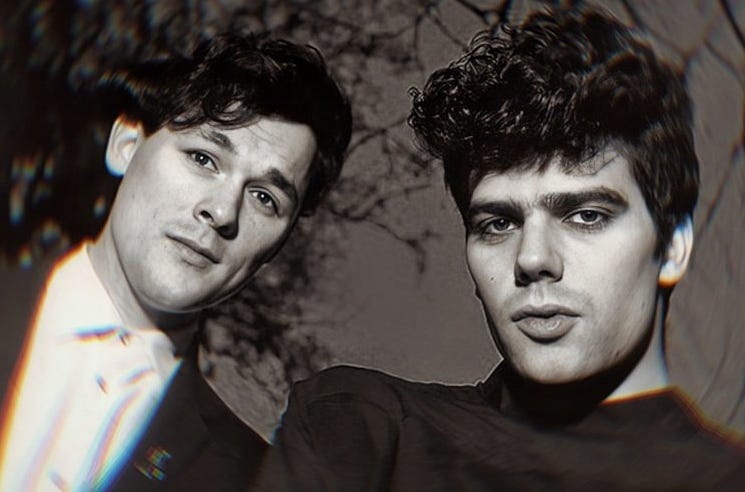15 Underrated Bands of the 1980s
There's undoubtably been a modern 80s revival, but who's been missed out?
Okay - you’re probably expecting some sort of spiel about my criteria for how I chose each band and to this my answer is simple. There isn’t one. That went out the window as soon as I looked up how many Spotify listeners Alphaville has and the number was about 20 million - entirely due to the fact Forever Young has just done the rounds on TikTok, so there is no solid criteria. I did trawl some forums, think long and hard about which bands someone would say they liked if they were posing as an 80s fan in the modern age (Queen? Duran Duran?) and most importantly I asked my mother, who was between the ages of 5 and 15 in the 1980s, so obviously the pinnacle of knowing what was cool or not. Enjoy!
—————————————
1. The Bolshoi
The Bolshoi were a British band formed in Wiltshire in 1984. Their first full-length album Friends was released in 1986 and sonically they’ve been described as a “proto-goth” band, and somewhat similar to former label-mates Bauhaus. The band was only active for four years until 1988, but in that time, they were able to release three studio albums. Despite gaining promising traction in their early years, the band ultimately disbanded in 1988 without a hit single or album. I did find out that two members of the original line-up recently reunited under the name The Bolshoi Brothers with the intention of putting out new music, but being brutally honest it’s a corny name and this event itself is unlikely to generate any interest outside of hardcore fans.
Recommended listening: Modern Man, Sunday Morning, Auntie Jean
2. The Chameleons
The Chameleons are another British band (as are most on this list whoops) formed in Manchester in 1981. Forced apart abruptly in 1987 due to internal conflict and the death of their manager, the band split without any commercial success but a cult following within the scene. Many (more famous) artists, especially coming out of the Manchester scene, have cited The Chameleons as huge influences and inspirations – Tim Burgess of the Charlatans, Billy Corgan of The Smashing Pumpkins, Oasis, The Verve, and Interpol. As far as what they’re up to today, there’s been various reunions and spinoffs over the years, with their first official studio release in 21 years being released in May 2024. The band are currently active and touring.
Recommended listening: Up the Down Escalator, View from a Hill, Less than Human
3. Big Country
Big Country are yet another British band, formed in Fife in 1981. Most recognisable for their biggest hit In a Big Country which peaked at number 17 in the UK singles chart in June 1983, the band have been pigeonholed as something of a “one hit wonder”. They had relative success in the 80s, touring as an opener for huge acts like Queen, but their success waned with the dawn of the 1990s. The band came to a finite halt in 2001 with the suicide of frontman Stuart Adamson – the rest of the band members unaware of the depth of his mental health problems with one of them quoted as saying the reason the band even lasted so long as because they “stayed out of each other’s personal lives”. On the 25thanniversary of their debut, the remaining original members reunited and have toured on and off since then, but as of 2024 only one of them remains with the rest having left because of desire to retire, creative differences or quite literally becoming a member of parliament for the Scottish National Party. While they did achieve some commercial success, I think that Big Country are not as widely remembered in the canon of good 80s pop as they should be and deserve more love.
Recommended listening: In a Big Country, Save Me, The Teacher
4. The Jesus and Mary Chain
The Jesus and Mary Chain was formed by brothers Jim and Will Reid in 1983 in East Kilbride, Scotland. While the brothers were the only consistent members, the line-up did at one point feature future Primal Scream frontman Bobby Gillespie on drums from the release of their first single up until just after the release of critically acclaimed debut album, Psychocandy. Like Big Country, JAMC experienced relative success at the time, with their second album Darklands reaching number five on the UK albums chart in 1987 – although this was the band’s only top ten album. The band imploded in 1999 in the middle of a tour after a drunk fight between the two brothers (tale as old as time, looking at you Liam and Noel), but they seem to have put this behind them, reuniting in 2007 and releasing albums in 2017 and most recently in 2024 which was their first top 10 album in the UK since 1988. This sounds like it should be an incredible success story, but I am of the opinion that once again in the modern British canon The Jesus and Mary Chain are criminally left out and underappreciated.
Recommended listening: Just Like Honey, Head On, Happy When it Rains
5. Orchestral Manoeuvres in the Dark
Orchestra Manoeuvres in the Dark – or as they’re more commonly and concisely known as, OMD – are a British band formed in the Wirral in 1978. Their sound is very synth-heavy, which being the 80s is very typical, but also very experimental which initially earned them a degree of hostility from music critics. They first achieved commercial success in 1980 with the anti-war single Enola Gay (named after the plane which dropped the atomic bomb on Hiroshima), which to date is their most streamed song on Spotify. That same year, the band was also named the eighth best new act of the year by NME readers. After losing commercial momentum in 1983, the band ventured back into more experimental territory with an album produced by the producer used by Brian Eno and Roxy Music. Difference in creative vision saw the band to split in 1989, but later reform in 2006. The band is currently still active, with their latest, and probably final album Bauhaus Staircase which was released in October 2023 peaking at number two on the UK albums chart. Another band that were relatively successful at their peak but have since faded into relative obscurity, their songs often find their way in television adverts but are wholly underappreciated.
Recommend listening: Enola Gay, Electricity, Walking on the Milky Way
6. Alphaville
Alphaville are the first non-British band on this list, hailing from Münster in Germany, formed in 1981. Heavily influenced by UK indie acts like Gary Numan and Tubeway Army, their first album was released in 1984, containing two of the songs that would go on to be their biggest hits – Big in Japan and Forever Young. Both achieved widespread commercial success across Europe, but less so in the UK and America. The band themselves loathed to tour, preferring the comfort of the studio which didn’t help with the containment of their fame. The band are still periodically active, although have lost members along the way. Their most recent original album was released in 2017, followed by a symphonic album of their songs in 2022. Outside of Europe, Alphaville can be considered very much a two-hit wonder. With Forever Young having just done the rounds trending on Tiktok and also having been included in numerous TV shows and films, you’d think that Alphaville may have experienced some sort of revival akin to Kate Bush’s Running Up That Hill did after its inclusion in Stranger Things – but no dice. Alphaville remain criminally underrated in the modern age.
Recommended listening: Big in Japan, Forever Young, Sounds like a Melody
7. Thompson twins
The Thompson Twins (confusingly named seeing as at any one time there was at least three of them – although really the name comes from the English version of Tintin) were originally formed in Sheffield in 1977. At various different times they’ve had up to seven different members, but the most well recognised line-up of Joe Leeway, Alannah Currie and Tom Bailey lasted from 1982-86. The band’s second album containing the single In the Name of Love which quickly became a number one dance club hit in the USA. Starting as a heavy new-romantic outfit, the success of ITNOL pushed the band to pursue a more commercial sound, to a fairly large degree of success. In 1983 the band finally broke the UK charts with Love on Your Side, which became the band’s first top 10 single. From this point onwards, they continued to enjoy vast commercial success, even opening for The Police’s US tour in 1983. They were even able to perform at the American leg of Live Aid in 1985 and were joined on-stage by Madonna. Leeway left the band in 1986, and from there the commercial success of the band began to wane. Bailey and Currie continued to make music as the Thompson Twins for another seven years, but much of their music was a commercial flop. The pair – who were together as a couple at this point – stepped back from music, got married and started a family and moved to Currie’s native New Zealand. The classic line-up briefly reunited in 2001 but no longer make music together, a fate sealed by Currie and Bailey’s divorce in 2003. There is no doubt that the Thompson Twins were sufficiently appreciated by commercial audiences at the time, but are another cracking band from the 1980s that imploded and seem to have been confined to the annuls of time.
Recommended listening: In the Name of Love, Sister of Mercy, Hold me Now
8. The Church
The Church are an Australian band formed in Sydney in 1980. Their debut album attracted much domestic interest, and they were signed to Aussie, European and US labels, although were soon dropped by the US label because of dissatisfaction with its follow up. This stunted their success internationally, but they finally returned to the US charts with their 1988 album Starfish, which spawned the Top 40 hit Under the Milky Way. They had degrees of steady success, with their manager at one point managing to secure them an opening spot for Duran Duran’s UK tour – which the band didn’t accept out of feeling audiences would be unsympathetic. However, despite building a solid and devoted fanbase, the band had limited commercial success both internationally and domestically, although did enjoy a degree more domestic success. The band’s success had fallen off almost completely by 1984, and they spent some time apart in an attempt to revive their creativity – which was successful and led to the release of two albums to critical acclaim, including Starfish. Ultimately however, sales were not as expected and the band were dropped by their label and – salt in the wound – lost a member mid tour. At present moment, most of the original band line-up have left the group. They’re still technically active, but haven’t released an album since 2017.
Recommended listening: Under the Milky Way, Reptiles, Almost With You
9. Haircut 100
Haircut 100 were formed in 1980 in Beckenham, London. Their debut single in late 1981 went straight to number 4 in the UK singles chart, which earned them a slot on Top of the Pops and jumpstarted their career. Their debut album Pelican West was released in 1982 to much critical acclaim, reaching number 2 in the UK albums chart. Sadly this was not to last. In early 1983, it was announced that the band’s lead singer and founding member Nick Heyward was parting ways with Haircut 100, and with him went all their commercial success. Follow up singles failed to break the top 40 and their second album in 1984 failed to chart at all, while Heywood embarked on a successful solo career. The band parted ways soon after. The band have reunited a few times, Heyward included, and have just toured the US and Canada with ABC and Howard Jones. Heyward also confirmed that somewhere out there is an album’s worth of new H100 material, but that we have yet to see.
Recommended listening: Love Plus One, Fantastic Day, Prime Time
10. Aztec camera
Aztec Camera were formed in 1980 in East Kilbride, Scotland by then 16-year old Roddy Frame. Their debut album was released in 1983 to some critical acclaim. The lead single Oblivious was written with the intention of being a commercial “pop” song and received the corresponding degree of success. Five successive albums were released, with varying degrees of success and their biggest hit Somewhere in my Heart, which peaked at number 3 in the UK singles chart in 1988. By the release of the their last album, Aztec Camera was essentially just Frame recording solo under the Aztec Camera moniker. In 1995 the band was officially disbanded when Frame decided to record under his own name and leave their record company.
Recommended listening: Somewhere in my Heart, Walk out to Winter, Oblivious
11. Falco
Falco is the stage name of Austrian singer Hans Hölzel. After playing with several bands, he began to establish an image that stood out in the music scene in Vienna and released his first solo album in 1981. The lead single Der Kommissar – released in German - became a number one success in many European countries and Japan, and charted highly in many others. Despite this, it failed to break the UK or the US until its covering in English by British band After the Fire, which charted at number 5 in the Billboard Hot 100 in the US. Falco began to experiment with the English language in his songs, leading to him finally breaking the UK in 1986 with Rock Me Amadeus, which again reached number 1 in many countries, this time including the UK and USA. Tragically Falco was involved in a fatal car crash in 1998, aged just 40, so aside from a posthumous album released in 1999 there will be no new music or tours. Generally a successful act, I think that it is a shame that he wasn’t more famous in the UK and US, and is mostly not mentioned at all in reference to the popular canon of the modern 80s revival.
Recommended listening: Der Kommissar, Rock Me Amadeus, The Sound of Musik
12. Killing joke
If fame was based on which music artist had the most random anecdotes I could tell about them – Killing Joke would literally be Taylor Swift. Killing Joke were formed in Notting Hill, London in 1979, starting off as a political punk band. Their self-titled debut album was released in 1980 and they toured extensively throughout the UK, gaining notoriety for the imagery they used, which relied on black humour and shock factor. After several members of the band became extremely fascinated with the occult, they moved to Iceland to “survive the apocalypse” they feared was coming and began working there (author note: ???). When this apocalypse inevitably failed to materialise, they moved back to the UK. The band saw their first mainstream success in 1985 with the release of Love Like Blood, which peaked at number 16 in the UK charts, and went higher in several European countries. The band entered a period of turmoil after this, with a fluctuating line-up which led them to a three-day spell with former Smiths bassist Andy Rourke. The band experienced no more real commercial success after this, and the band went on hiatus in 1991 after lead singer Jas Coleman emigrated to New Zealand to live on a remote island in the Pacific. The band reformed for a period between 1992-96, producing two top 40 hits before going back on hiatus again. The band have reformed a few times since then, most recently releasing an EP in 2022, however after suffering the deaths of two original members the future of the band is unclear.
Recommended listening: Love Like Blood, Eighties, A New Day
13. The Associates
The Associates were formed in Dundee in 1979 by the writing partnership of vocalist Billy Mackenzie and guitarist Alan Rankine. Earning a recording contract with a cover of David Bowie’s Boys Keep Swinging, their debut album was released in 1980. Their breakthrough would not come until 1982 with the release of the single Party Fears Two which reached number 9 on the UK singles chart and was followed by their most commercially successful album, Sulk. Rankine left the band in 1982, just before the tour to promote Sulk. Mackenzie was unwilling to tour without him but continued to write and record music under The Associates name until 1990. The follow-up album Perhaps was released in 1985 and reached 23 in the UK albums chart. Rankine and Mackenzie briefly worked together again in 1993 and a potential Associates reunion and speculation of a tour generated a lot of excitement among fans. Ultimately this fell through due to Mackenzie’s unwillingness to tour so the two parted ways for a final time. Mackenzie, who had been suffering from clinical depression, committed suicide in 1997 aged just 39 shortly after the death of his mother. This is a fact that makes me truly so deeply sad, because Billy Mackenzie was a true cultural icon. Rankine is sadly also now dead, having passed away in 2023. The Associates truly deserved so much better commercially and the fact that their story has such a tragic end only serves to underscore this.
Recommended listening: Party Fears Two, 18 Carat Love Affair, Waiting for the Loveboat
14. Gene Loves Jezebel
Gene Loves Jezebel were formed in London in 1980, and were based around the work of Welsh brothers Michael and Jay Aston. Their debut album released in 1983 peaked at number 8 in the UK Indie Chart. Experiencing limited commercial success, the band were more often than not more successful in the USA than their native UK. The band split in 1989 after Oasis-style differences between the Aston brothers. The brothers reconciled in the mid-1990s and GLJ embarked on a reunion tour in 1997. Winning the prize for the most legally complicated story on this list, I will now attempt to summarise everything that happened next. After the reunion tour Michael Aston parted ways with the band and the remaining members sued him for the rights to the Gene Loves Jezebel name, although this lawsuit was eventually dropped. There exists currently two versions of the band as per a settlement reached in 2009 – Gene Loves Jezebel (US name) or Michael Aston’s Gene Loves Jezebel (UK name)(Michael Aston, US based) and Jay Aston’s Gene Loves Jezebel (remaining members, UK based) – confused? Yup, me too. I do however find this completely entertaining, and I must admit I got a bit carried away looking over all their court drama. Maybe deservedly underrated as after reading through all this I’m not sure who in their right mind could be bothered to keep up with it – at least the Gallagher brothers had the decency to tour under their own names after Oasis split.
Recommended listening: Motion of Love, Bruises, Desire (Come and Get it)
15. Japan
Japan have their origins in Catford, South London, formed in 1974 by brothers David Sylvian and Steve Jansen (stage names), and Mick Karn – who were later joined by Richard Barbieri and Rob Dean. Originally a glam rock outfit, the band are considered foundational in the new wave movement and went on to inspire later bands like Duran Duran. The band gained their record deal by coming second place to The Cure in a talent contest staged by Hansa Records, signing their contract in 1977. Their debut album Adolescent Sex was released in 1978 and was followed by a support slot on Blue Öyster Cult’s UK tour in the same year. At this time the band was only really popular in their namesake country and faced hostile audiences and much negative criticism. Despite this the band continued, achieving some mild success in Europe and Canada, as well as being named the second most popular group in Japan in 1978 – selling out three nights at an 11k capacity venue in March 1979. Their third album Quiet Lifemarked a significant departure from their signature style, and was rewarded with big chart hitters in Japan, Europe and Canada, but in the UK it pottered in at 72 on the UK album charts, being their first album to even make it that far. Hansa Records dropped Japan after this, but they were able to sign with Virgin Records who were responsible for the release of the band’s final two albums - Gentlemen TakePolaroids in 1980 and Tin Drum in 1981. These two albums continued the experimental sound seen in Quiet Life and this paired with the band’s visual appearance led them to be associated with the early New Romantic scene, much to Sylvian’s distaste. Tin Drum saw Japan’s biggest UK hit with the single Ghosts, which peaked at number 5, with the album itself peaking just outside of the top 10 in UK album charts and being gold certified within four months. Just as the band were beginning to achieve commercial success, they split up. Rob Dean had already left the band at this point after the release of Gentlemen Take Polaroids. Japan’s last performance was in December 1982. Post-break up, all members were working on their own projects. Bassist Mick Karn was undoubtedly the most sought after, working on solo projects, producing for big artists such as Gary Numan and Kate Bush, and forming the duo Dalis Car with Bauhaus’ Peter Murphy. 4/5 of the original members of Japan (minus Dean) went on to later reunite in 1989 under the name Rain Tree Crow, putting out one album before later going separate ways due to creative friction between David Sylvian and the other members. As of today, it is my understanding that most of the members are not on speaking terms, and to add salt in the wound, we sadly lost Mick Karn in 2011 to cancer. There is little hope for a Japan reunion without him.
Recommended listening: Gentlemen Take Polaroids, Love is Infectious, Visions of China
There we have it! This is entirely my personal opinion so feel free to disagree of course. I’m hoping to also do a version of this post pertaining to the 1990s if I can find the time (it took me over two weeks to write this one!!!) and can think of enough people to write about. Any inaccuracies in this post are purely because I’m writing this in parallel to a big uni essay so my brain is fried. If anything, I hope this has introduced at least one person to a new song or a new band they like the sound of.
Fin.
As always, I’m also @myd4rkstar on tiktok and @anartaccountthatdoesntgetused on instagram.





